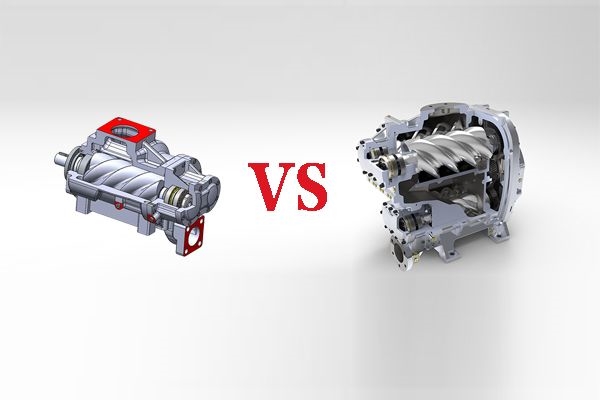
Tel :+ 86 13927313502
E-mail : 18902622229@163.com
What is the difference between single-stage compression and two-stage compression screw air compressors?
Choosing between single-screw and twin-screw air compressors can be confusing, so let’s break down the key differences to help you make an informed decision:
1. Applicability
- Single-screw air compressors are ideal for high-pressure applications such as air, refrigeration, and natural gas compressors where high exhaust pressure is required.
- Twin-screw air compressors are best suited for medium to low-pressure environments, like power air compressors, refrigeration compressors, and low-pressure natural gas compressors with pressures above 4.5 MPa.
2. Processing Equipment
- Single-screw compressors often suffer from performance instability due to the lack of mature processing equipment.
- Twin-screw compressors benefit from advanced screw milling machines, ensuring consistent and reliable performance.

3. Reliability
- Single-screw compressors have a star wheel that’s prone to wear, requiring regular replacement. High material quality is essential to prolong its lifespan.
- Twin-screw compressors are designed without such vulnerable parts, allowing for trouble-free operation for 40,000 to 80,000 hours.
4. Efficiency
- Single-screw compressors operate at medium speeds (1500-3500 r/min) and are generally more efficient, with a specific power rating of 5.9-6.4 kW/(m³/min).
- Twin-screw compressors operate at higher speeds (3000-7000 r/min) and include an acceleration device, with a specific power of 6.0-6.6 kW/(m³/min). However, over time, wear on the star wheel in single-screw compressors can reduce both gas output and overall efficiency.
5. Noise and Vibration
- Single-screw compressors are known for low vibration and noise levels, typically ranging from 60 to 68 dB(A).
- Twin-screw compressors may produce higher-frequency noise due to metal screws meshing, with noise levels between 64 and 78 dB(A).
Understanding these distinctions can help you choose the compressor that best meets your needs. If you're still uncertain about which model to select, feel free to contact us for expert advice and assistance!






